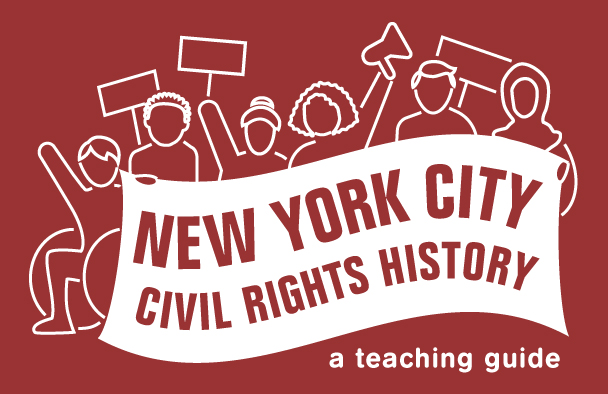You are here:
Interview with Jitu Weusi on Mayoral Control of New York City Schools (excerpt)

Date: May 25, 2013
Caption: Jitu Weusi was an educator, activist, and critic of mayoral control. In this interview he outlined the reasons he believes mayoral control disempowers people and the communities they live in.
Jitu Weusi, born and raised in Brooklyn and originally named Leslie Campbell, was an educator and educational activist.
As a teenager, he attended Brooklyn Technical High School in 1952 before transferring to Franklin K. Lane. He later reflected that antiblack violence was common at Brooklyn Tech and seemed to be a cultural rite of passage for the white students, many of them first- or second-generation European immigrants.
After graduating from Long Island University Brooklyn, Campbell became a teacher at J.H.S. 35 in Bedford-Stuyvesant. He worked alongside other politically active teachers to create a curriculum that centered African and African diaspora identity and connected those histories to “the current situation of the black man.” After attending the Black Power conference held in Newark, New Jersey in 1967, Weusi returned with a renewed energy to transform schools into “tools for molding our communities and our students.” He lead a group of his eighth grade students to a Malcolm X memorial service at I.S. 201 in Harlem, for which the Board of Education suspended him from his teaching position.1
He became a teacher at J.H.S. 271, one of the schools in the Ocean Hill-Brownsville community control demonstration district. He continued his activist pedagogy, which angered some of his colleagues, students, and students’ parents. Many other students attest to his brilliance as an educator and credited him with expanding their worldviews and nurturing a sense of empowerment. As one student put it, they “became international” in their outlook because of his teaching.2
The Board of Education dismissed Weusi from his post at J.H.S. 271 in 1969. However, he remained connected with a number of high school students in the area and throughout the city. Weusi, along with students, purchased an old warehouse at 10 Claver Place to create “The East,” a new institution that could feed the “revolutionary appetite” of Black youth. The East housed a new independent school, Uhuru Sasa Shule (“Freedom Now School” in Swahili), which was inspired by Pan-African politics and ideas for community development. The East also became a venue for community art shows and musical performances while hosting adult classes in the evening.3
Weusi continued to work as an activist and an education administrator in Brooklyn for decades.
-
Quoted in Russell Rickford, We Are an African People: Independent Education, Black Power, and the Radical Imagination (New York: Oxford University Press, 2016), 65. ↩︎
-
This description of Weusi’s work as a teacher draws on Rickford, We Are an African People. See also: Max Freedman and Mark Winston Griffith, “Agitate! Educate! Organize!,” October 11, 2019, in School Colors, produced by Brooklyn Deep, podcast, https://www.schoolcolorspodcast.com/episodes/episode-4-agitate-educate-organize. ↩︎
-
Rickford, We Are an African People; Freedman and Griffith, “Agitate! Educate! Organize.” On the East, see Tayo Giwa and Cynthia Gordy Giwa, “The Sun Rises in the East,” 2022, https://www.sunrisesintheeast.com/. ↩︎
Categories: K-12 organizing, community activism, teacher activism
This item is part of "Mayoral Control" in "Who Governs Schools?"
Item Details
Date: May 25, 2013
Source: LINKLaV
Copyright: Under copyright
How to cite: “Interview with Jitu Weusi on Mayoral Control of New York City Schools (excerpt),” in New York City Civil Rights History Project, Accessed: [Month Day, Year], https://nyccivilrightshistory.org/gallery/interview-with-jitu-weusi.
Questions to Consider
- Based on Weusi’s previous activism and work in education, why do you think he was opposed to mayoral control of schools?
- Weusi saw mayoral control as a “dictatorship,” rather than a democratic organization of schools. Why did he view mayoral control as a “dictatorship”? Do you agree or disagree? Why?
- How did Weusi’s priorities for education differ from those who supported mayoral control like Joel Klein and Michael Bloomberg?
References
How to Print this Page
- Press Ctrl + P or Cmd + P to open the print dialogue window.
- Under settings, choose "display headers and footers" if you want to print page numbers and the web address.
- Embedded PDF files will not print as part of the page. For best printing results, download the PDF and print from Adobe Reader or Preview.
